Peugeot 308 vs Peugeot 208 – Differences & prices compared
Compare performance, boot space, consumption and price in one view.
Find out now: which car is the better choice for you – Peugeot 308 or Peugeot 208?
The Peugeot 308 (Hatchback) comes with a Diesel, Electric or Petrol MHEV engine and Automatic transmission. In comparison, the Peugeot 208 (Hatchback) features a Petrol, Electric or Petrol MHEV engine with Manuel or Automatic transmission.
When it comes to boot capacity, the Peugeot 308 offers 412 L, while the Peugeot 208 provides 352 L – depending on how much space you need. If you’re looking for more power, decide whether the 156 HP of the Peugeot 308 or the 156 HP of the Peugeot 208 suits your needs better.
In terms of consumption, the values are 15.20 kWh5 L per 100 km for the Peugeot 308, and 14.10 kWh4.50 L for the Peugeot 208.
Price-wise, the Peugeot 308 starts at 28600 £, while the Peugeot 208 is available from 20200 £. Compare all the details and find out which model fits your lifestyle best!
In the latest showdown between the Peugeot 208 and Peugeot 308, the two models showcase distinct personalities catering to different driving preferences. The Peugeot 208, with its compact size and nimble handling, appeals to urban dwellers seeking efficiency and style. Meanwhile, the Peugeot 308 offers more space and advanced technology, making it a strong contender for families and those who prioritize comfort on longer journeys.
Peugeot 308
The Peugeot 308 presents a refined blend of style and sophistication, making it a compelling option for anyone in search of a dynamic yet practical vehicle. Its sleek design is complemented by a thoughtfully crafted interior that ensures both driver and passengers travel in comfort and elegance. Moreover, the 308 offers a responsive driving experience, combining agility with a sense of security on the road.
details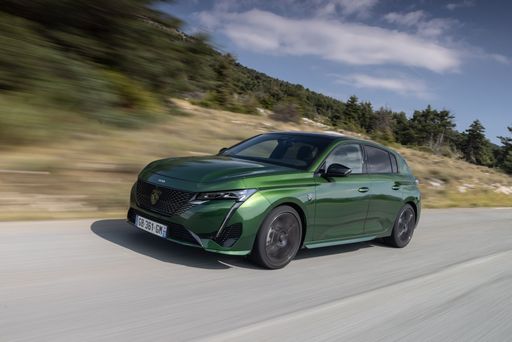 @ media.stellantis.com
@ media.stellantis.com
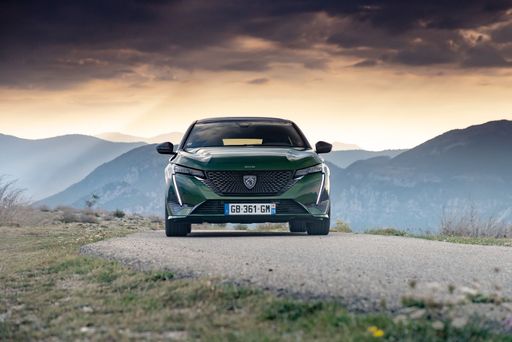 @ media.stellantis.com
@ media.stellantis.com
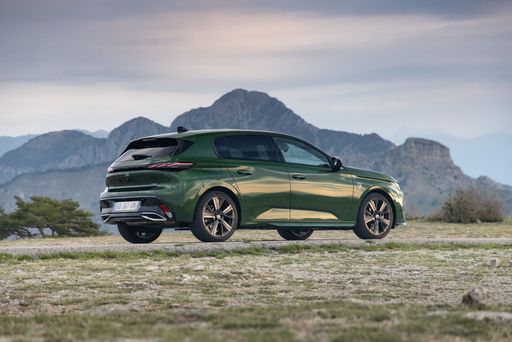 @ media.stellantis.com
@ media.stellantis.com
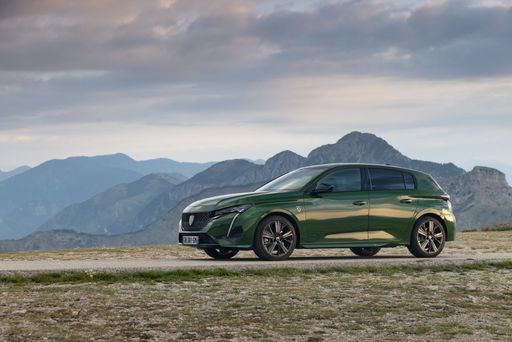 @ media.stellantis.com
@ media.stellantis.com
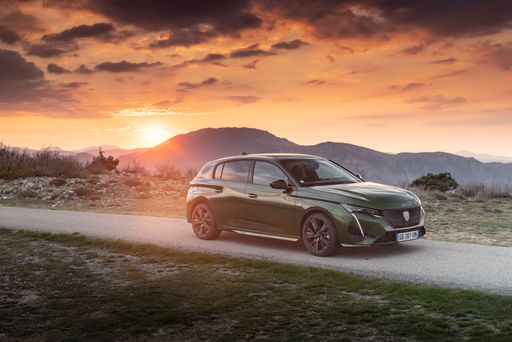 @ media.stellantis.com
@ media.stellantis.com
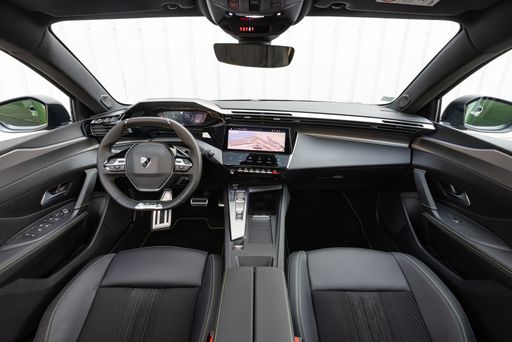 @ media.stellantis.com
@ media.stellantis.com
Peugeot 208
The Peugeot 208 exudes a distinctive French charm, combining sleek lines with an assertive stance on the road. Inside, it offers a modern and sophisticated cabin, complete with intuitive technology and high-quality finishes to enhance the driving experience. Its agile handling and efficient performance make it a delightful choice for both city commuting and longer journeys.
details @ www.media.stellantis.com
@ www.media.stellantis.com
 @ www.media.stellantis.com
@ www.media.stellantis.com
 @ www.media.stellantis.com
@ www.media.stellantis.com
 @ www.media.stellantis.com
@ www.media.stellantis.com
The Clash of the Compacts: Peugeot 208 vs Peugeot 308
The automotive market has been buzzing with excitement as two of Peugeot's most popular models, the Peugeot 208 and the Peugeot 308, continue to dominate the compact segment. Though they belong to the same family, these vehicles cater to slightly different audiences. In this article, we will compare their technical aspects, innovations, and performance to help you decide which model is right for you.
Engine Choices and Performance
The Peugeot 208 offers a diverse range of engine options, including petrol, petrol mild-hybrid (MHEV), and fully electric variants. The petrol engines offer power outputs ranging from 101 HP to 156 HP, while the electric versions deliver an impressive range of up to 410 km. The 308, on the other hand, takes the engine lineup a step further by introducing diesel options alongside petrol, MHEV, and plugin hybrid variants. The power range for the 308 starts from 130 HP and goes up to a staggering 225 HP in the performance-focused models.
Acceleration is another area where both models shine. The 208 can launch from 0 to 100 km/h in as little as 8.3 seconds, whereas the 308 showcases a more athletic performance with certain versions achieving the same sprint in just 7.5 seconds. This distinction reflects the 308's positioning as a slightly more performance-oriented offering.
Fuel Efficiency and Consumption
When it comes to fuel consumption, the Peugeot 208 offers impressive figures, managing between 4.7 and 5.4 L/100 km for its petrol variants. The electric models consume between 14 kWh and 16.1 kWh per 100 km. The 308 presents itself as a strong competitor, with fuel consumption ranging from 1.3 L/100 km for its plugin hybrid variant to 5.9 L/100 km for its petrol engines. The electric version achieves a noteworthy 15.6 kWh/100 km. This efficiency highlights Peugeot’s commitment to sustainable driving experiences across its model range.
Dimensions and Practicality
Dimensionally, the Peugeot 308 is the larger of the two, with a length of 4367 mm and width of 1852 mm compared to the 208's 4055 mm length and 1745 mm width. This added size translates into a more spacious interior and a trunk capacity of 412 liters, as opposed to the 208's 309 liters. Both models comfortably accommodate five passengers, making them practical choices for family or urban commuting.
Innovations and Technology
Both models are infused with Peugeot's latest technological advancements. The 208 features the brand's i-Cockpit design, characterized by a compact steering wheel and a high-mounted digital display. This holistic approach makes the driving experience more engaging. The 308 also adopts this design philosophy, integrating a larger infotainment screen and a more sophisticated digital cluster, which provides drivers with essential information at a glance.
In terms of safety, both cars come equipped with an array of features such as lane-keeping assist, adaptive cruise control, and emergency braking systems, ensuring a safe driving experience. The enhancements in technology reflect Peugeot's commitment to keeping up with modern automotive trends.
Conclusion: Which One is Right for You?
Choosing between the Peugeot 208 and Peugeot 308 ultimately depends on your specific needs. If you are looking for a compact, agile hatchback perfect for city driving, the Peugeot 208 is an excellent choice. However, if you prefer a more spacious interior and potentially more power, the Peugeot 308 could be the better option for you. Both vehicles showcase Peugeot's engineering excellence and commitment to innovation, making them leaders in their respective segments.

|

|
|
|
|
Costs and Consumption |
|
|---|---|
|
Price
28600 - 41700 £
|
Price
20200 - 35100 £
|
|
Consumption L/100km
5 - 5.1 L
|
Consumption L/100km
4.5 - 5.2 L
|
|
Consumption kWh/100km
15.2 - 15.6 kWh
|
Consumption kWh/100km
14.1 - 15.4 kWh
|
|
Electric Range
419 km
|
Electric Range
362 - 432 km
|
|
Battery Capacity
51 kWh
|
Battery Capacity
46 - 51 kWh
|
|
co2
0 - 133 g/km
|
co2
0 - 117 g/km
|
|
Fuel tank capacity
52 - 53 L
|
Fuel tank capacity
44 L
|
Dimensions and Body |
|
|---|---|
|
Body Type
Hatchback
|
Body Type
Hatchback
|
|
Seats
5
|
Seats
5
|
|
Doors
5
|
Doors
5
|
|
Curb weight
1436 - 1759 kg
|
Curb weight
1165 - 1530 kg
|
|
Trunk capacity
361 - 412 L
|
Trunk capacity
309 - 352 L
|
|
Length
4367 mm
|
Length
4055 mm
|
|
Width
1852 mm
|
Width
1745 mm
|
|
Height
1441 mm
|
Height
1430 mm
|
|
Payload
431 - 510 kg
|
Payload
380 - 430 kg
|
Engine and Performance |
|
|---|---|
|
Engine Type
Diesel, Electric, Petrol MHEV
|
Engine Type
Petrol, Electric, Petrol MHEV
|
|
Transmission
Automatic
|
Transmission
Manuel, Automatic
|
|
Transmission Detail
Automatic Gearbox, Dual-Clutch Automatic, Reduction Gearbox
|
Transmission Detail
Manual Gearbox, Dual-Clutch Automatic
|
|
Drive Type
Front-Wheel Drive
|
Drive Type
Front-Wheel Drive
|
|
Power HP
130 - 156 HP
|
Power HP
101 - 156 HP
|
|
Acceleration 0-100km/h
9 - 10.6 s
|
Acceleration 0-100km/h
8.3 - 10.9 s
|
|
Max Speed
170 - 210 km/h
|
Max Speed
150 - 200 km/h
|
|
Torque
230 - 300 Nm
|
Torque
205 - 270 Nm
|
|
Number of Cylinders
3 - 4
|
Number of Cylinders
3
|
|
Power kW
96 - 115 kW
|
Power kW
74 - 115 kW
|
|
Engine capacity
1199 - 1499 cm3
|
Engine capacity
1199 cm3
|
General |
|
|---|---|
|
Model Year
2023 - 2025
|
Model Year
2023 - 2025
|
|
CO2 Efficiency Class
D, A, C
|
CO2 Efficiency Class
D, A, C
|
|
Brand
Peugeot
|
Brand
Peugeot
|
Peugeot 308
Unveiling the Peugeot 308: A Blend of Style and Innovation
The Peugeot 308, an exemplar of French automotive engineering, brings together sleek design, advanced technology, and efficient performance. This hatchback caters to a diverse range of drivers, from eco-conscious individuals to those seeking a spirited driving experience. Let’s delve into the technical details and innovative features that define the Peugeot 308.
Powertrain Options: From Conventional to Cutting Edge
The Peugeot 308 offers an impressive array of powertrains to suit varying preferences and needs. Whether you opt for a traditional petrol, a fuel-efficient diesel, a sophisticated plug-in hybrid, or the fully electric variant, the 308 ensures an engaging drive. Petrol and diesel engines offer power outputs ranging from 130 to 130 PS, catering to both urban commutes and highway drives. The plug-in hybrid variants, boasting up to 225 PS, promise a seamless blend of power and efficiency, with an electric-only range of up to 57 km, perfect for city driving.
Engineering and Efficiency: Striking a Balance
The engineering marvel lies in the Peugeot 308's commitment to efficiency without compromising on performance. The fuel economy stands out, with consumption figures between 1.3 L/100km for plug-in hybrids and 5.9 L/100km for petrol engines. The electric version showcases an impressive 15.6 kWh/100km, allowing an electric range of 419 km, making it a viable option for those looking to reduce their carbon footprint.
Anatomy of Design: Sleek and Functional
Peugeot’s design philosophy shines through in the 308, with a captivating combination of elegance and practicality. Its dimensions - 4367mm in length, 1852mm in width, and 1441mm in height - create a spacious yet maneuverable vehicle. The five-door hatchback accommodates up to five passengers, offering a comfortable journey while boasting a boot space of 361 to 412 litres.
Technological Innovations and Features
The 308's cabin is a testament to Peugeot's commitment to innovation. It features an intuitive digital i-Cockpit, offering a more engaging driving interface with a configurable 10-inch digital cluster and a high-definition central touchscreen. Advanced driver assistance systems ensure safety and convenience, including adaptive cruise control, lane-keeping assist, and automated emergency braking, which elevate the driving experience.
Performance and Dynamics: Designed for the Enthusiast
Performance in the Peugeot 308 is not merely a promise but a reality, with acceleration from 0-100 km/h achieved in 7.5 to 10.6 seconds depending on the model. The dynamic chassis ensures a stable and responsive driving experience, while the range of gearbox options, including a smooth automatic and a manual transmission, cater to different driving styles.
Conclusion: The Allure of the Peugeot 308
The Peugeot 308 epitomises the blend of style, efficiency, and innovation. It offers a diverse range of powertrain options, ensuring that there’s a 308 for every kind of driver. Whether you're drawn to its design, captivated by its technology, or impressed by its efficiency, the 308 stands as a testament to Peugeot's evolution in the modern automotive landscape.
Peugeot 208
A Glimpse into the Future: The New Peugeot 208
The Peugeot 208, with its sleek design and innovative features, continues to set benchmarks in the automotive industry. As a hatchback, it seamlessly blends style with practicality, offering the perfect solution for urban driving and long-distance travels alike. In this article, we delve into the technical details and innovations that distinguish the latest iterations of the Peugeot 208.
Engine Options: Efficiency Meets Performance
The Peugeot 208 provides an array of engine options catering to different driving preferences. Featuring both petrol Mild-Hybrid technology and full electric powertrains, it offers a versatile range designed to accommodate eco-conscious drivers as well as those who prioritise performance.
With power outputs ranging from 101 PS to 156 PS, and a torque span of 205 Nm to 270 Nm, these machines are meticulously engineered to provide thrilling yet efficient drives. The petrol versions utilise a three-cylinder 1199 cm³ engine, optimising fuel consumption between 4.7 and 5.4 L/100km, while the electric e-208 models boast an impressive range of up to 410 km on a single charge.
Advanced Transmission Systems
The Peugeot 208 models come equipped with an advanced automatic transmission system, employing either a dual-clutch automatic gearbox or a manual transmission, depending on the chosen variant. These systems guarantee smooth gear transitions, thus enhancing driving pleasure and overall efficiency.
Performance and Environmental Considerations
From a performance standpoint, the Peugeot 208 impresses with its ability to accelerate from 0 to 100 km/h in between 8.3 to 10.9 seconds, depending on the model chosen. This level of performance is complemented by a top speed ranging from 150 to 200 km/h, ensuring that the 208 is more than capable of holding its own on the motorway.
With environmental consciousness at the forefront, the vehicle's CO2 efficiency class ranges from A to D, further establishing the Peugeot 208 as a responsible option for modern drivers keen on reducing their carbon footprint.
Comfort and Practicality: A Class Act
The interior of the Peugeot 208 reflects its exterior's stylish flair. It comfortably seats five passengers and offers a boot capacity of 265 to 309 litres, accommodating both city commutes and weekend getaways. Advanced comfort features and a state-of-the-art infotainment system ensure that rides are as enjoyable for passengers as they are for the driver.
Cost Considerations
The Peugeot 208 manages to strike a remarkable balance between cost efficiency and luxury. With prices ranging from €22,950 to €40,825, there is a variant to suit most budgets while still providing a premium experience. Additionally, the monthly costs and costs per kilometre are kept in check, making it an economically sound choice in the long term.
Dimensions and Design: Compact yet Spacious
Measuring 4,055 mm in length, 1,745 mm in width, and 1,430 mm in height, the Peugeot 208 maintains a compact profile that is perfectly suited to tight urban environments. Despite its manageable size, it offers ample space inside, thanks in part to clever design and engineering.
Conclusion: A Future-Proof Choice
The Peugeot 208 is a testament to modern automotive innovation. Whether powered by traditional engines or fully electric powertrains, it consistently delivers on performance, efficiency, and style. The combination of cutting-edge technology and sustainable practices places the Peugeot 208 as a forward-thinking choice for drivers seeking a vehicle that epitomises the best of contemporary motoring.
The prices and data displayed are estimates based on German list prices and may vary by country. This information is not legally binding.
